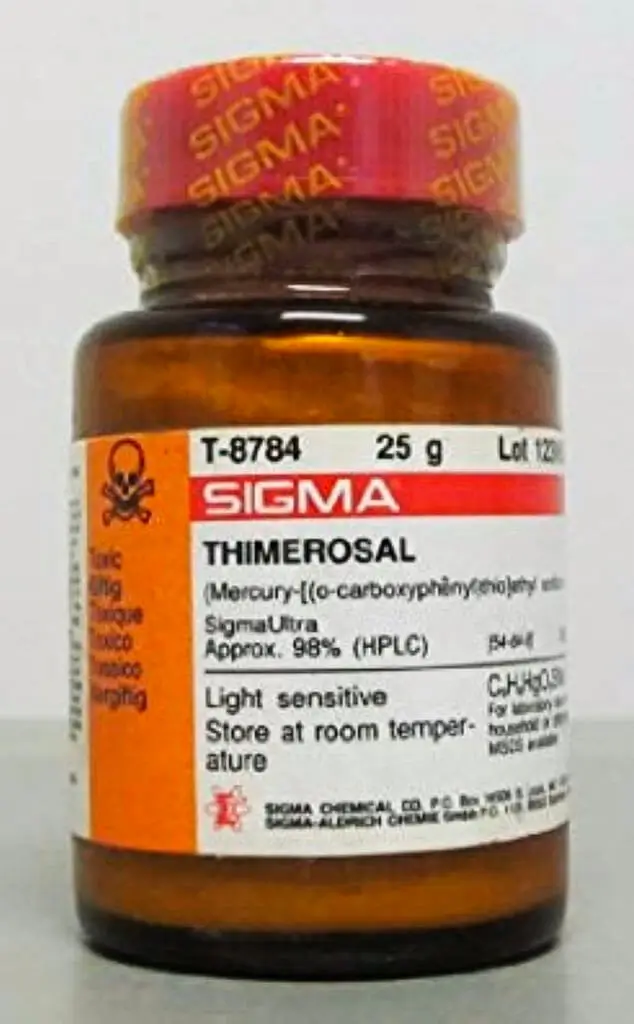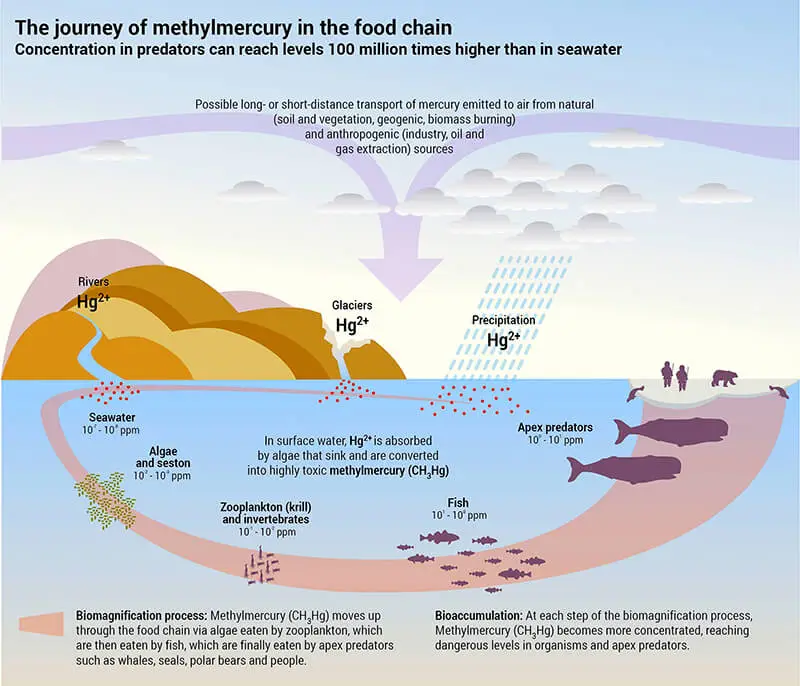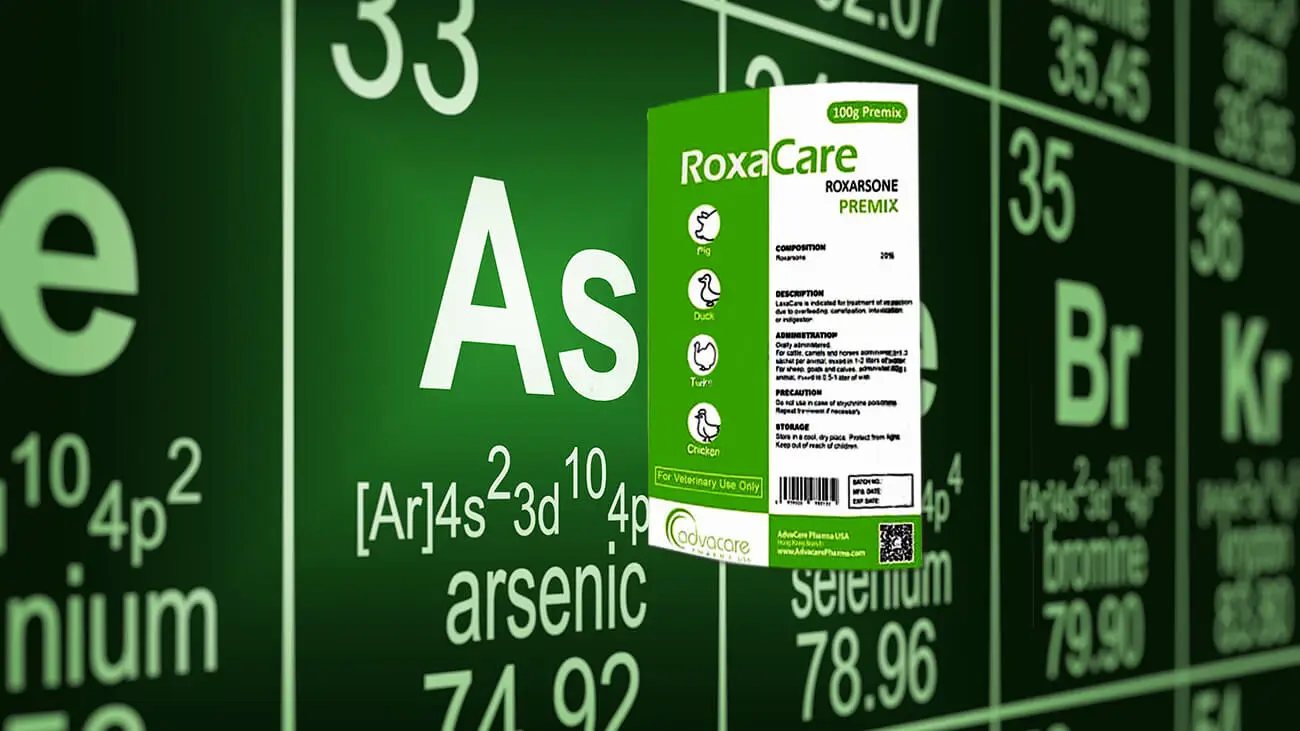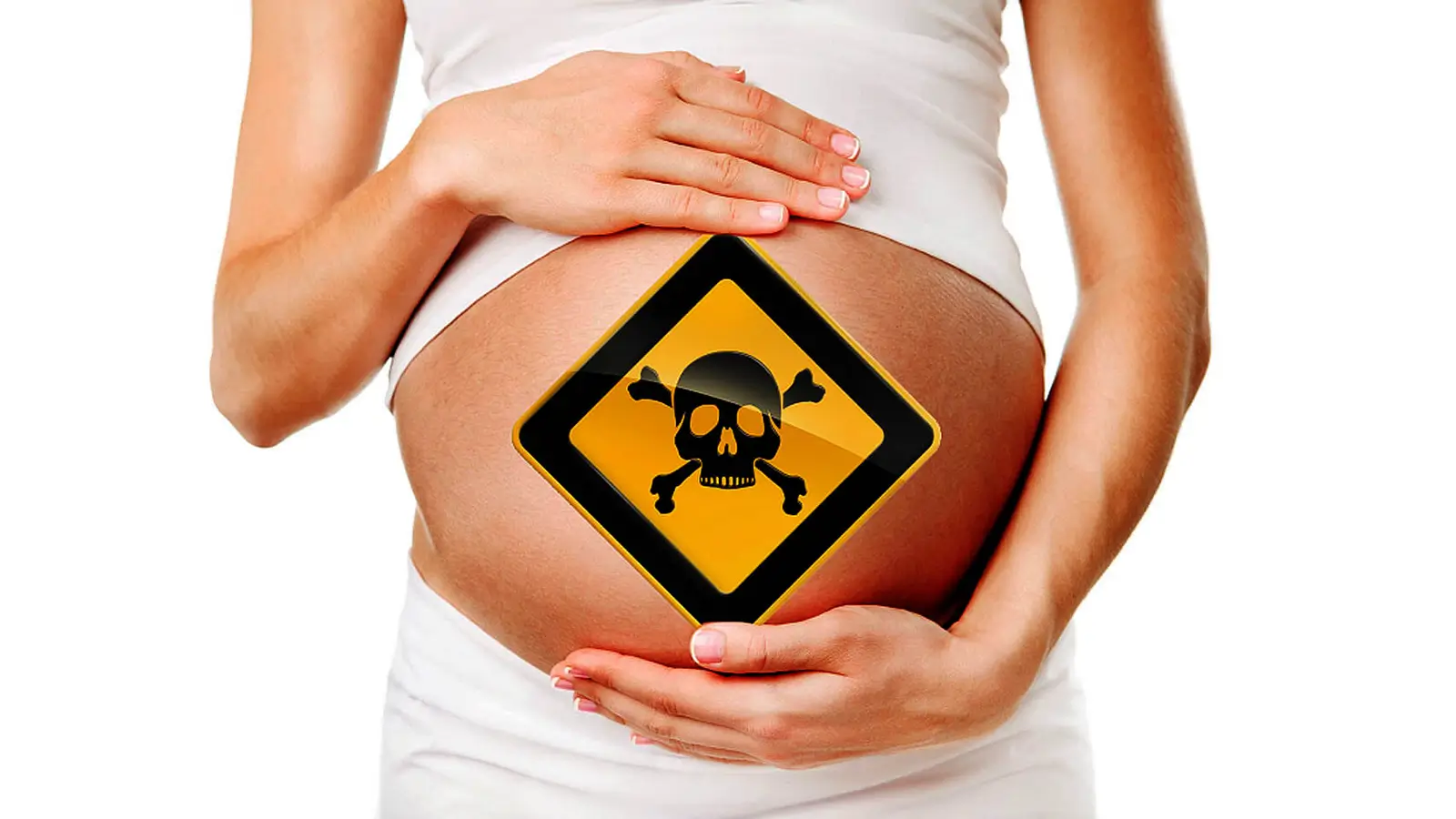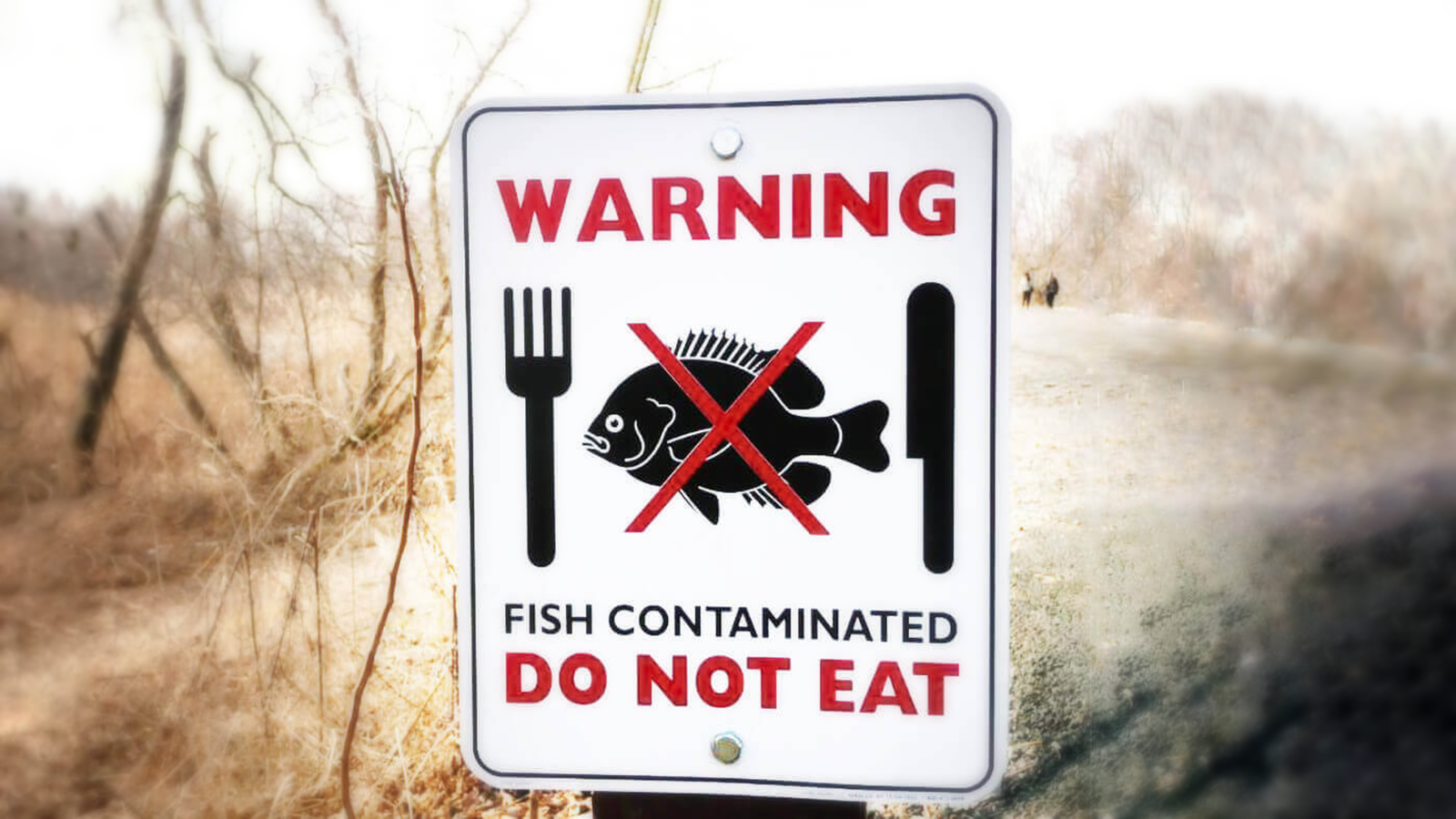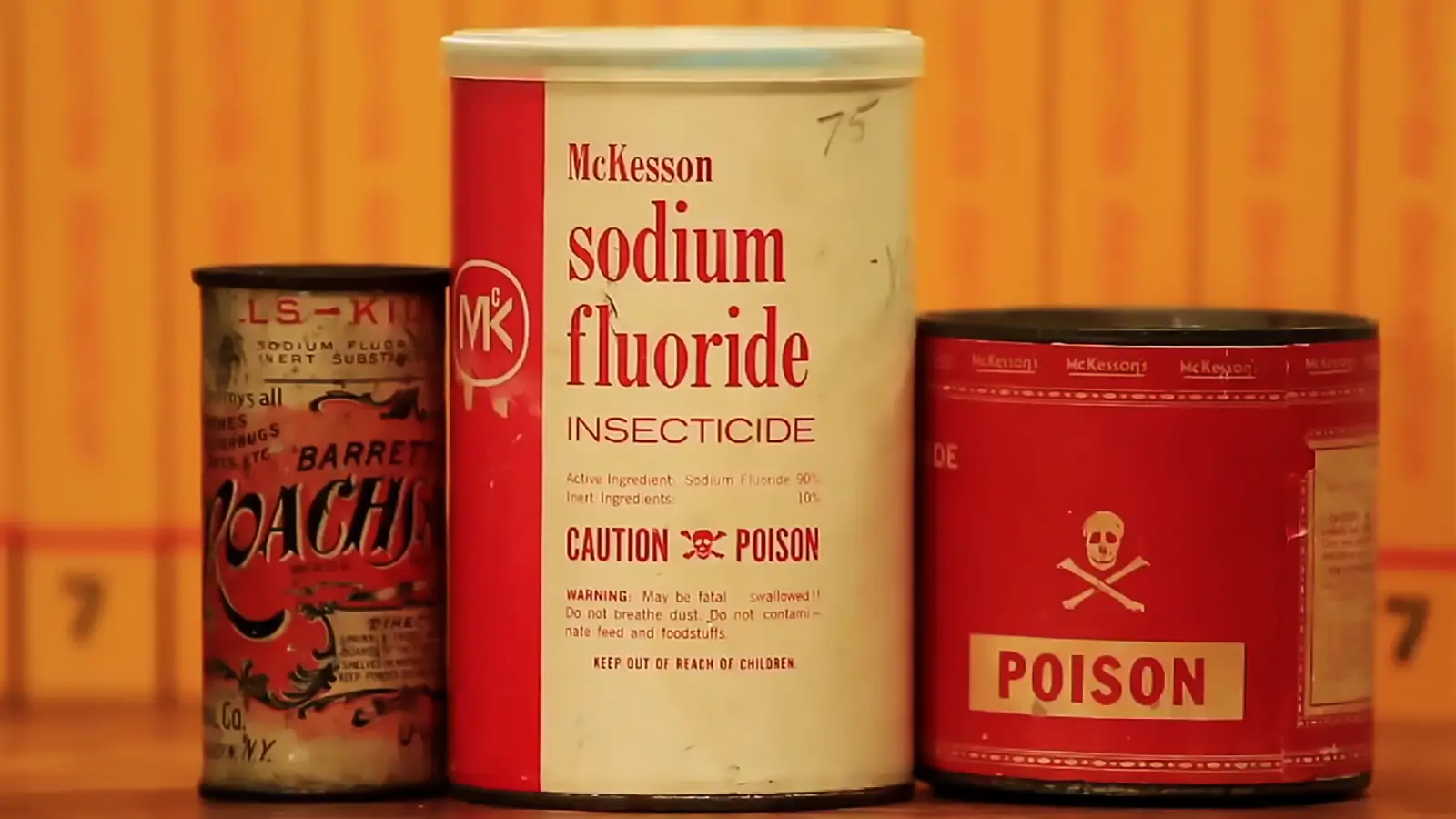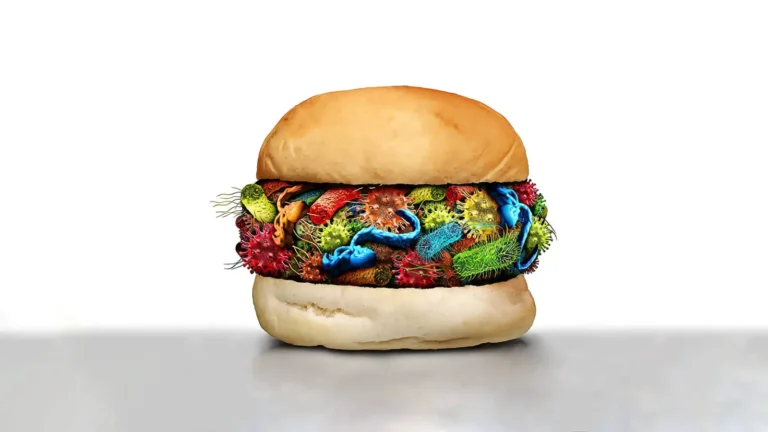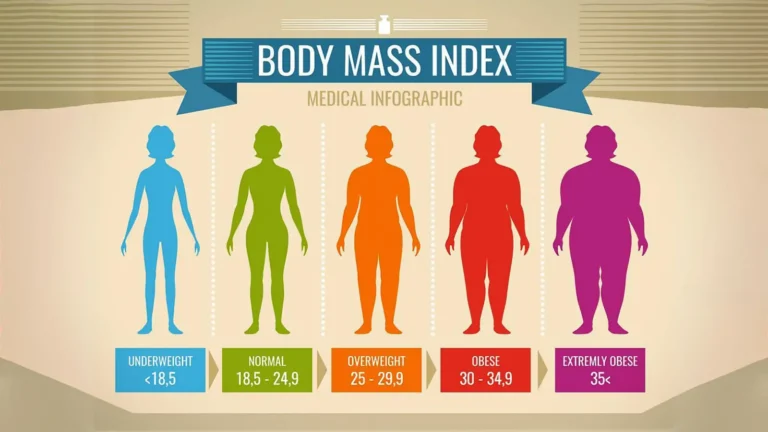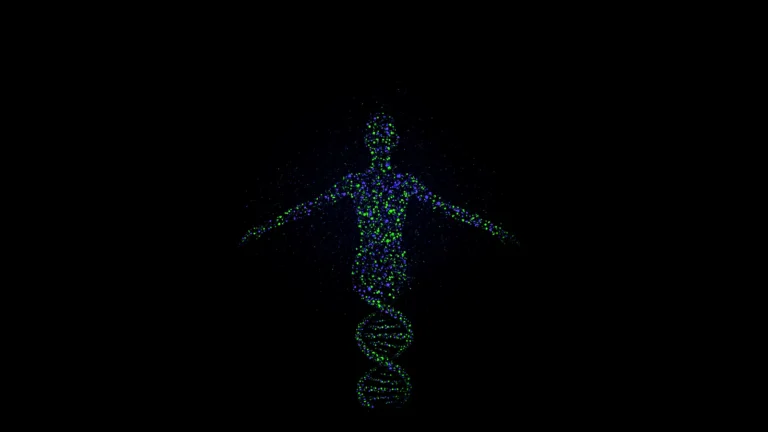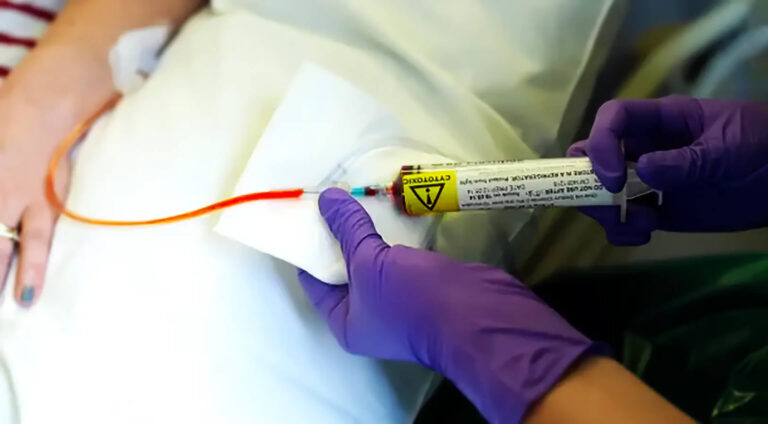Mercury- Neurotoxin from the fish
Mercury is an industrial toxin and the most neurotoxic substance known. Plankton will absorbe it from seawater and initiate bioaccumulation in the food chain.
Milos Pokimica
Written By: Milos Pokimica
Medically Reviewed by: Dr. Xiùying Wáng, M.D.
Updated June 9, 2023We are being taught to think of fish as a healthy form of meat or at least a form that is a healthier and better choice. The reason is that fish has all of the healthy omega-3 fatty acids that we need for our brains. We need to get omega-3 fatty acids from food to prevent age-related cognitive decline. There are no omega 3 inland animals if there are not deliberately fed with flaxseed like in the case with omega 3 eggs. Omega 3 eggs are like conventional eggs except that chicken feed is supplemented with an omega-3 source like flax seeds. Fish get them from algae that actually produce them and then when fish eat algae it will get passed around through the food chain. Also, fish tends to have fewer calories than other meat sources but that might not always be the case.
The problem is that there are more than just the omega-3 fats in fish that comes from seawater. Everything that is in the water no matter how minute the concentration the algae will filter out and concentrate tens and hundreds of times more. One thing that will be present in seawater that is not present in freshwater and that plankton will pick up, and also algae, and that will then bioaccumulate in the food chain is one of the most neurotoxic substances known to mankind. Mercury.
We are being taught to think of poisons in a dose-dependent manner because that is how modern medicine works. Something is poison, but it has a low concentration so it is ok. Some side effects and so on. “The dose makes the poison” (Latin: “sola dosis facit venenum”). It is an adage intended to indicate a fundamental principle of toxicology. It is credited to Paracelsus, the alchemist, and father of modern medicine. Now, this is correct for some chemicals but not for all of them. Some toxins do damage, and I will argue most of them do damage in any exposure. This means that if we ingest even one molecule of a substance, it would cause damage. That damage would not be enough to kill us, but the damage will happen.
An excellent example of this is mercury. It is so toxic for our brain that it kills brain cells upon contact. Neurologic damage is most severe in utero. Mercury upon contact with neurons causes neuronal atrophy. When it enters the brain no matter what concentration, even one atom of it, it will do severe damage. If exposure is significant, it will cause severe neuronal atrophy with no chance of recovery. Long-term studies have demonstrated that even minuscule prenatal exposure at very low concentrations can cause a detectable loss in the areas of memory, language, and motor function. Children are so sensitive to it, so if affected, they may have hearing loss, visual loss, seizure disorders, developmental delay, and long-term stigmata including motor impairment. For a pregnant woman, it is forbidden to eat tuna in any amount. Also, your brain and body can be exposed to toxic mercury through a number of other ways as well, from getting a flu shot to having a dental filling. To be reasonable here, one can of tuna has more mercury in it than 100 vaccines. Studies have found that people with amalgam dental fillings can have mercury vapor concentrations ten times higher than those in people without them.
Fish consumption provides nutrients but also provides methyl-mercury. All marine fish, not just tuna, contain methylmercury (MeHg), some more and some less. Because the toxic effect of mercury is most destructive during brain development, prenatal exposure is of the most significant concern. Mercury is a cardiac toxin as well, not just the brain one. I will give an example here to put things into perspective.
In this study (Oken et al., 2008) they analyzed connections of children’s susceptibility to mercury both from pregnancy exposure from mother and from fish consumption. Thimerosal from vaccines was looked into as well as dental amalgam impacts on child neurodevelopment. Vaccines in the past used something called thimerosal, which is a preservative containing mercury. To put this into perspective.
Eating a single serving of tuna had the same mercury level as 100 (one hundred) thimerosal vaccines.
The summary of the study was:
“Exposure to mercury may harm child development. Interventions intended to reduce exposure to low levels of mercury in early life must, however, be carefully evaluated in consideration of the potential attendant harm from resultant behavior changes, such as reduced docosahexaenoic acid exposure from lower seafood intake, reduced uptake of childhood vaccinations, and suboptimal dental care.”
Thimerosal has been taken out from most of the vaccines young children get in 2001, with the exception of the flu vaccine, which still contains small amounts. However, how about something one hundred times worse. One single serving of canned tuna. How many servings have we eaten in our lifetime? How about all the other fish? It is not just tuna, all fish has mercury some more some less and it is not just mercury. I use mercury here only as an example. There is a whole list of other heavy metals like mercury that will remain in our ocean for eternity and will never biodegrade because they are elemental particles. Also, there are a thousand other non-organic resistant pollutants that also didn’t degrade and bioaccumulate and microplastic, and the list goes on. The reason this toxin is highly concentrated and highly toxic in such levels in tuna is that tuna is a predatory fish at the top of the food chain. On the bottom of a food chain are plankton and algae that filter the seawater and then the concentration will get ten to a hundred times that in the water but that will still be low. Then these substances start to accumulate as we move up the food chain. As the bigger fish eat the smaller fish it eats all of its toxins as well. When we arrive at the top of the food chain the situation is as it is. The only solution is to go low on the food chain.
Do not eat meat from the oceans, and especially do not eat predatory fish like tuna. Even molecularly distilled DHA supplements are proven to be polluted with heavy metals and toxins. Even krill oil people have begun to substitute instead of fish oil to avoid pollution was proven to be polluted. Krill has a very short life and krill oil was still highly polluted. If you want omega 3’s then just eat flax. Flax has lignans that have a wide range of health benefits including breast cancer prevention and minerals and fiber and is one of the healthiest food items you can get. If you want a supplement as a vegan you can still get algae-based DHA oil. Never and I will repeat this never eat anything from the sea even if you are pregnant or if you are a child if it is from the oceanic animal kingdom ever period, vegan or not. If you eat tuna and expecting a baby you just lowered your baby’s IQ by a measurable amount or worse.
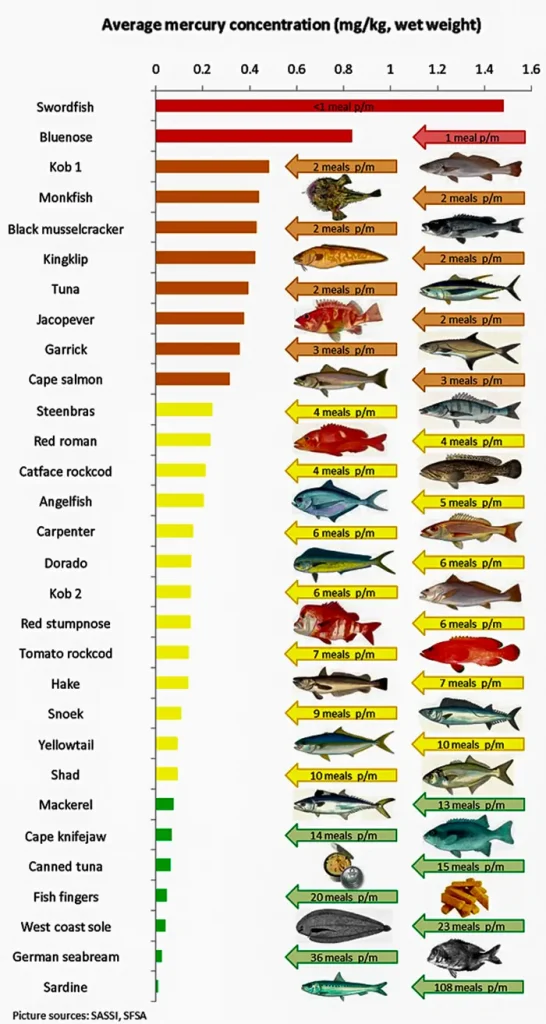
There was a big public concern and mistrust in vaccines and the possibility of links with autism and other diseases. However, there was no public outcry about fish consumption. Fish toxicity is the number one source of mercury in the world. Mercury in fish is so concentrated that by all accounts some of the fish species should be forbidden by law to be used as human food. One single serving is worse than all of the vaccines your child will receive in your life if we look at mercury levels only that is.
What about cadmium?
What about PCBs, PBDEs, dioxins, and chlorinated pesticides?
Because mercury is a neurotoxin, it was thought it was the underlying cause of the connection between autism and vaccination. Today more children get autism even without mercury in vaccines and the estimate is that this number will grow. This is a big subject to analyze, and I will say that most vaccines can be dangerous just by themselves and can cause harm but they do save a lot of lives and in the end, it remains the question of trust in the companies that supply those vaccines.
References:
- Oken, E., & Bellinger, D. C. (2008). Fish consumption, methylmercury and child neurodevelopment. Current opinion in pediatrics, 20(2), 178–183. https://doi.org/10.1097/MOP.0b013e3282f5614c
Related Posts
Do you have any questions about nutrition and health?
I would love to hear from you and answer them in my next post. I appreciate your input and opinion and I look forward to hearing from you soon. I also invite you to follow us on Facebook, Instagram, and Pinterest for more diet, nutrition, and health content. You can leave a comment there and connect with other health enthusiasts, share your tips and experiences, and get support and encouragement from our team and community.
I hope that this post was informative and enjoyable for you and that you are prepared to apply the insights you learned. If you found this post helpful, please share it with your friends and family who might also benefit from it. You never know who might need some guidance and support on their health journey.
– You Might Also Like –

Learn About Nutrition
Milos Pokimica is a doctor of natural medicine, clinical nutritionist, medical health and nutrition writer, and nutritional science advisor. Author of the book series Go Vegan? Review of Science, he also operates the natural health website GoVeganWay.com
Medical Disclaimer
GoVeganWay.com brings you reviews of the latest nutrition and health-related research. The information provided represents the personal opinion of the author and is not intended nor implied to be a substitute for professional medical advice, diagnosis, or treatment. The information provided is for informational purposes only and is not intended to serve as a substitute for the consultation, diagnosis, and/or medical treatment of a qualified physician or healthcare provider.NEVER DISREGARD PROFESSIONAL MEDICAL ADVICE OR DELAY SEEKING MEDICAL TREATMENT BECAUSE OF SOMETHING YOU HAVE READ ON OR ACCESSED THROUGH GoVeganWay.com
NEVER APPLY ANY LIFESTYLE CHANGES OR ANY CHANGES AT ALL AS A CONSEQUENCE OF SOMETHING YOU HAVE READ IN GoVeganWay.com BEFORE CONSULTING LICENCED MEDICAL PRACTITIONER.
In the event of a medical emergency, call a doctor or 911 immediately. GoVeganWay.com does not recommend or endorse any specific groups, organizations, tests, physicians, products, procedures, opinions, or other information that may be mentioned inside.
Editor Picks –
Milos Pokimica is a health and nutrition writer and nutritional science advisor. Author of the book series Go Vegan? Review of Science, he also operates the natural health website GoVeganWay.com
Latest Articles –
Top Health News — ScienceDaily
- The overlooked nutrition risk of Ozempic and Wegovyon February 4, 2026
Popular weight-loss drugs like Ozempic and Wegovy can dramatically curb appetite, but experts warn many users are flying blind when it comes to nutrition. New research suggests people taking these medications may not be getting enough guidance on protein, vitamins, and overall diet quality, increasing the risk of muscle loss and nutrient deficiencies.
- A 25-year study found an unexpected link between cheese and dementiaon February 4, 2026
A massive Swedish study tracking nearly 28,000 people for 25 years found an unexpected link between full-fat dairy and brain health. Among adults without a genetic risk for Alzheimer’s, eating more full-fat cheese was associated with a noticeably lower risk of developing the disease, while higher cream intake was tied to reduced dementia risk overall. The findings challenge decades of low-fat dietary advice but come with important caveats.
- MIT’s new brain tool could finally explain consciousnesson February 4, 2026
Scientists still don’t know how the brain turns physical activity into thoughts, feelings, and awareness—but a powerful new tool may help crack the mystery. Researchers at MIT are exploring transcranial focused ultrasound, a noninvasive technology that can precisely stimulate deep regions of the brain that were previously off-limits. In a new “roadmap” paper, they explain how this method could finally let scientists test cause-and-effect in consciousness research, not just observe […]
- Why heart disease risk in type 2 diabetes looks different for men and womenon February 4, 2026
Scientists are digging into why heart disease risk in type 2 diabetes differs between men and women—and sex hormones may be part of the story. In a large Johns Hopkins study, men with higher testosterone had lower heart disease risk, while rising estradiol levels were linked to higher risk. These hormone effects were not seen in women. The results point toward more personalized approaches to heart disease prevention in diabetes.
- Sound machines might be making your sleep worseon February 4, 2026
Sound machines may not be the sleep saviors many believe. Researchers found that pink noise significantly reduced REM sleep, while simple earplugs did a better job protecting deep, restorative sleep from traffic noise. When pink noise was combined with outside noise, sleep quality dropped even further. The results suggest that popular “sleep sounds” could be doing more harm than good—particularly for kids.
- This unexpected plant discovery could change how drugs are madeon February 3, 2026
Plants make chemical weapons to protect themselves, and many of these compounds have become vital to human medicine. Researchers found that one powerful plant chemical is produced using a gene that looks surprisingly bacterial. This suggests plants reuse microbial tools to invent new chemistry. The insight could help scientists discover new drugs and produce them more sustainably.
- A hidden cellular process may drive aging and diseaseon February 3, 2026
As we age, our cells don’t just wear down—they reorganize. Researchers found that cells actively remodel a key structure called the endoplasmic reticulum, reducing protein-producing regions while preserving fat-related ones. This process, driven by ER-phagy, is tied to lifespan and healthy aging. Because these changes happen early, they could help trigger later disease—or offer a chance to stop it.
PubMed, #vegan-diet –
- Diet type and the oral microbiomeon February 2, 2026
CONCLUSION: The diet-oral microbiome-systemic inflammation axis is bidirectional and clinically relevant. Understanding both direct ecological regulation and indirect metabolic effects is essential to support precision nutrition strategies aimed at maintaining oral microbial balance and systemic inflammatory risk mitigation.
- Consensus document on healthy lifestyleson January 22, 2026
Proteins are a group of macronutrients that are vital to our lives, as they perform various functions, including structural, defensive and catalytic. An intake of 1.0-1.2 g/kg/body weight per day would be sufficient to meet our needs. Carbohydrate requirements constitute 50 % of the total caloric value and should be obtained mainly in the form of complex carbohydrates. In addition, a daily intake of both soluble and insoluble fiber is necessary. Regular consumption of extra virgin olive oil […]
- Vitamin B12 and D status in long-term vegetarians: Impact of diet duration and subtypes in Beijing, Chinaon January 21, 2026
CONCLUSIONS: This study reveals a dual challenge among Beijing long-term vegetarians: vitamin B12 deficiency was strongly associated with the degree of exclusion of animal products from the diet (veganism), while vitamin D deficiency was highly prevalent and worsened with longer diet duration. The near-universal vitamin D deficiency observed in this study suggests that, in the Beijing context, the risk may extend beyond dietary choice, potentially reflecting regional environmental factors;…
- Nutritional evaluation of duty meals provided to riot police forces in Germanyon January 13, 2026
Background: The primary role of the German riot police is maintaining internal security. Due to challenging working conditions, riot police forces face an elevated risk of various diseases. During duty, forces are provided with meals. A balanced diet can reduce the risk of some of these diseases and contribute to health-promoting working conditions. Aim: First evaluation of the nutritional quality of duty meals in Germany based on German Nutrition Society recommendations (DGE). Methods: In…
- Iodineon January 1, 2006
Iodine is an essential trace nutrient for all infants that is a normal component of breastmilk. Infant requirements are estimated to be 15 mcg/kg daily in full-term infants and 30 mcg/kg daily in preterm infants.[1] Breastmilk iodine concentration correlates well with maternal urinary iodine concentration and may be a useful index of iodine sufficiency in infants under 2 years of age, but there is no clear agreement on a value that indicates iodine sufficiency, and may not correlate with […]
Random Posts –
Featured Posts –
Latest from PubMed, #plant-based diet –
- From paddy soil to dining table: biological biofortification of rice with zincby Lei Huang on February 4, 2026
One-third of paddy soils are globally deficient in zinc (Zn) and 40% of Zn loss in the procession from brown rice to polished rice, which results in the global issue of hidden hunger, e.g., the micronutrient deficiencies in the rice-based population of developing countries. In the recent decades, biofortification of cereal food crops with Zn has emerged as a promising solution. Herein, we comprehensively reviewed the entire process of Zn in paddy soil to human diet, including the regulatory…
- Molecular Characterization of Tobacco Necrosis Virus A Variants Identified in Sugarbeet Rootsby Alyssa Flobinus on February 3, 2026
Sugarbeet provides an important source of sucrose; a stable, environmentally safe, and low-cost staple in the human diet. Viral diseases arising in sugarbeet ultimately impact sugar content, which translates to financial losses for growers. To manage diseases and prevent such losses from occurring, it is essential to characterize viruses responsible for disease. Recently, our laboratory identified a tobacco necrosis virus A variant named Beta vulgaris alphanecrovirus 1 (BvANV-1) in sugarbeet…
- Nutrition in early life interacts with genetic risk to influence preadult behaviour in the Raine Studyby Lars Meinertz Byg on February 3, 2026
CONCLUSIONS: Nutrition in early life and psychiatric genetic risk may interact to determine lasting child behaviour. Contrary to our hypothesis, we find dietary benefits in individuals with lower ADHD PGS, necessitating replication. We also highlight the possibility of including genetics in early nutrition intervention trials for causal inference.
- Effect of the gut microbiota on insect reproduction: mechanisms and biotechnological prospectsby Dilawar Abbas on February 2, 2026
The insect gut microbiota functions as a multifunctional symbiotic system that plays a central role in host reproduction. Through the production of bioactive metabolites, gut microbes interact with host hormonal pathways, immune signaling, and molecular regulatory networks, thereby shaping reproductive physiology and fitness. This review summarizes recent advances in understanding how gut microbiota regulate insect reproduction. Accumulating evidence demonstrates that microbial metabolites…
- Rationale and design of a parallel randomised trial of a plant-based intensive lifestyle intervention for diabetes remission: The REmission of diabetes using a PlAnt-based weight loss InteRvention…by Brighid McKay on February 2, 2026
CONCLUSIONS: This trial will provide high-quality clinical evidence on the use of plant-based ILIs to address the epidemics of obesity and diabetes to inform public health policies and programs in Canada and beyond.
- Diet type and the oral microbiomeby Daniel Betancur on February 2, 2026
CONCLUSION: The diet-oral microbiome-systemic inflammation axis is bidirectional and clinically relevant. Understanding both direct ecological regulation and indirect metabolic effects is essential to support precision nutrition strategies aimed at maintaining oral microbial balance and systemic inflammatory risk mitigation.
